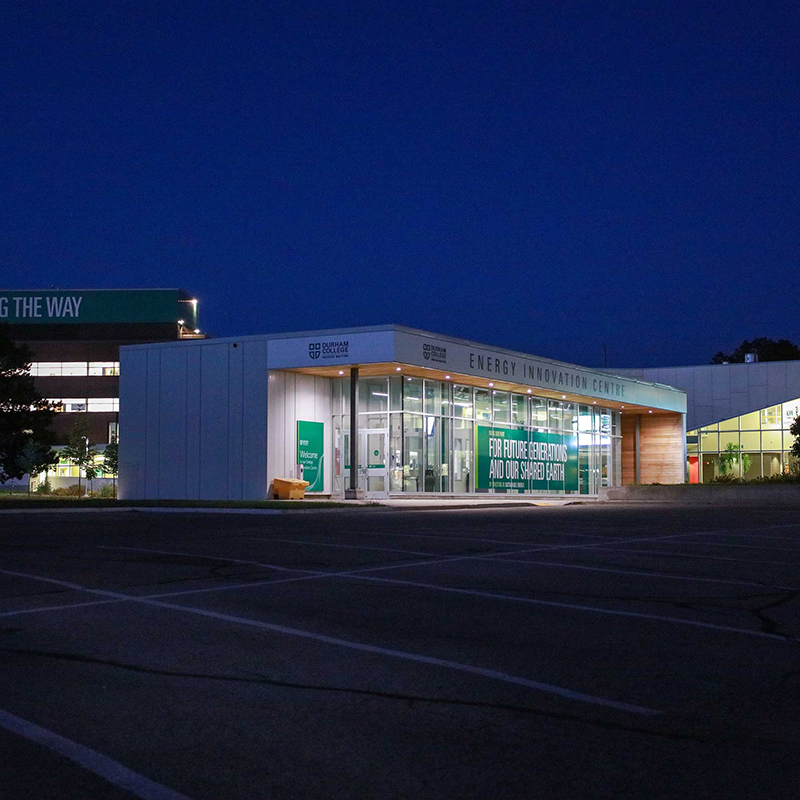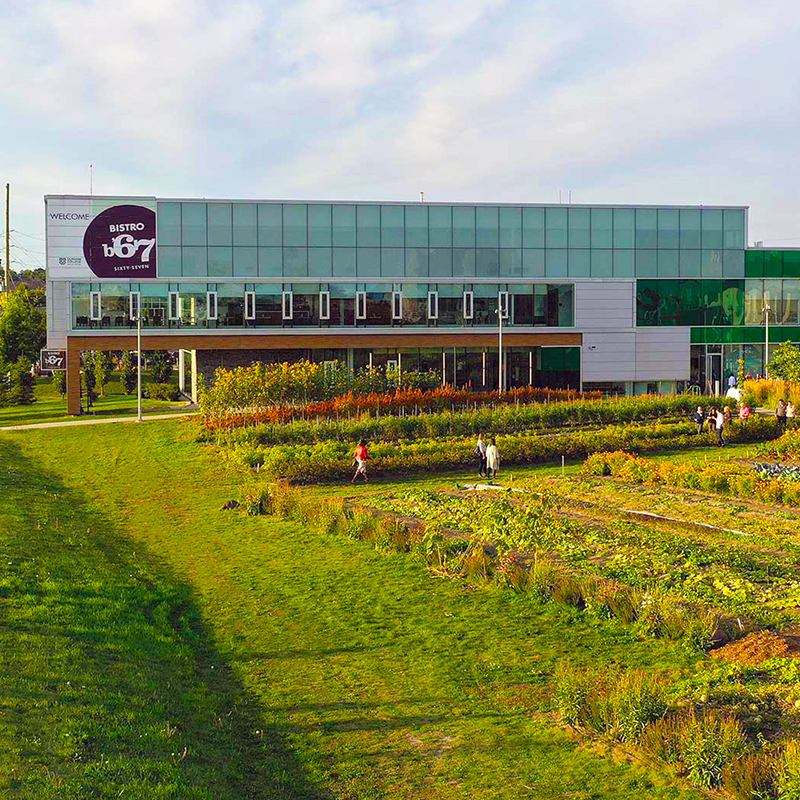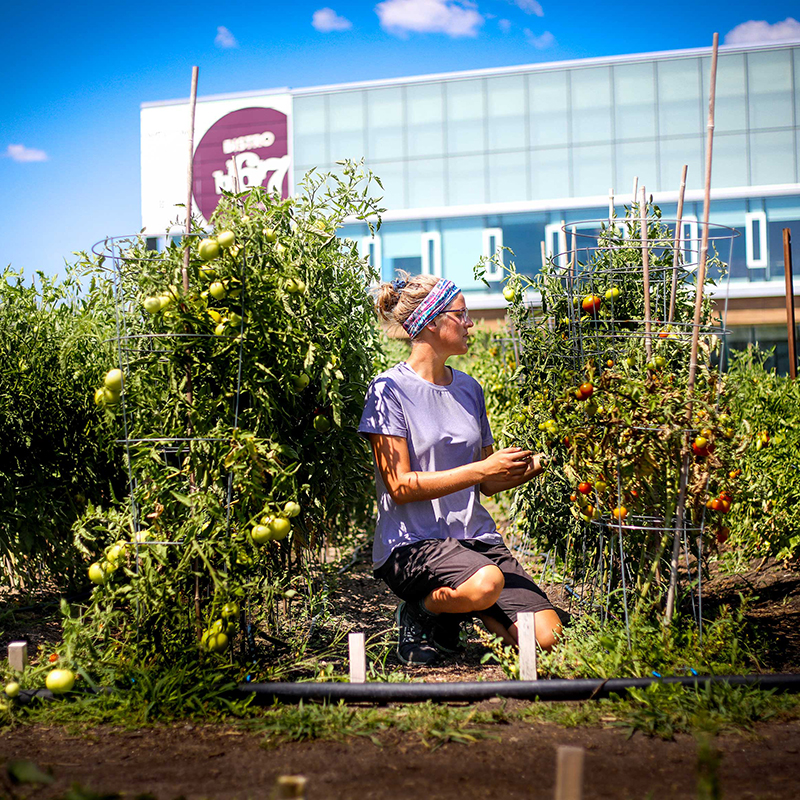Durham Region is full of opportunity and activity for DC students
Photo credit: Invest Durham
Durham Region is an exceptional place to live, work and play. And, with both of our Durham College (DC) campuses located here, it’s also a great place for students to take their learning beyond our campus and support and lead initiatives that benefit the entire community.
Take a look around at all that Durham Region has to offer, and don’t be surprised if you run into a few DC grads and students!
-

Immerse yourself in culture
If you’re looking for new experiences, you’ll find plenty of them in Durham Region.
Parkwood Estate is a great place to enjoy a beautiful day. Once the home of R.S. McLaughlin, founder of General Motors of Canada, the century-old mansion boasts historic gardens and greenhouses as well as timeless art and architecture. Parkwood is familiar to some DC students, not only because it has been featured in a number of films and television shows, but Horticulture Technician program students have the opportunity to apply their knowledge and training in the estate’s renowned green spaces.
DC has been home to a number of talented artists over the years, many of whom have been featured in the annual Durham College Thesis Exhibition at the Robert McLaughlin Gallery. But you don’t have to leave campus to enjoy beautiful art. Art in the Pit is hosted by DC third-year Fine Art Community Collaboration Service Learning students in partnership with the LivingRoom Community Art Studio and the City of Oshawa. Open to the public, Art in the Pit is a free, on-campus experience that helps participants connect with their own creativity and with others through engaging activities in a relaxed environment.
-

Enjoy delicious, seasonal food
Durham Region is a foodie’s delight. Local businesses like Crave Doughnuts and The Piano Inn and Café serve up delicious menu selections and they’re also owned by proud DC alumni.
Our Whitby campus is home to Bistro ’67, one of Canada’s 100 Most Scenic Restaurants. Bistro ’67 offers a true field-to-fork dining experience, with meals prepared and served by students from our Culinary and Hospitality programs, and using fresh ingredients from our own gardens.
The Durham College Farmer’s Market features freshly harvested DC-grown produce, baked goods and preserves. It’s held at both the Whitby and Oshawa campuses every week throughout the summer.
DC has partnered with Community Care Durham (CCD) and the Town of Ajax to help provide affordable, locally grown produce to those in need. CCD launched a weekly mobile food market in north Ajax. Thanks to DC’s W. Galen Weston Centre for Food and the Barrett Centre of Innovation in Sustainable Urban Agriculture, the mobile food market provides seasonal produce, including lettuce, radishes, apples, strawberries, potatoes, watermelon, cabbage, sweet potatoes and more. All proceeds support CCD’s food programs and help fight food insecurity in our communities.
-

Experience nature
Durham Region provides endless opportunities for you to get outside, soak up the sun and experience the natural beauty that surrounds you. The area boasts a number of trails and waterfronts that are ideal for exercise, leisure and sightseeing. Get your steps in with a walk on the Great Lakes Waterfront Trail, the Oak Ridges Moraine, or enjoy the sights and sounds of Lake Ontario at lakefront parks across the region.
If it’s the latter that interests you, DC students from the Contemporary Web Design and the Interactive Media Design program are ready to help. They partnered with TeachingCity Oshawa to develop a waterfront trail wayfinding app that guides you along Oshawa’s 11-kilometre waterfront trail with strategically placed QR codes. The app works in conjunction with the QR codes, that when scanned, provide you with valuable information, history and fun facts about your location on the waterfront trail. The waterfront trail wayfinding app will enhance your waterfront experience in Oshawa and provides information you wouldn’t otherwise have access to.
Wherever you go in Durham Region, you’ll find evidence of DC’s commitment to supporting our communities.




